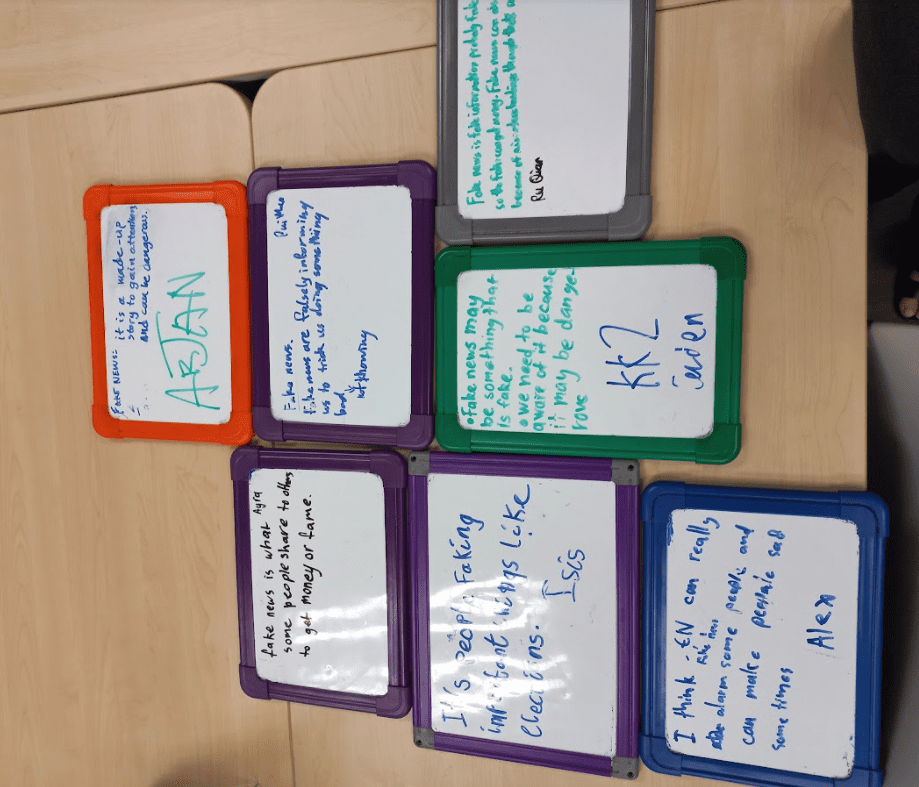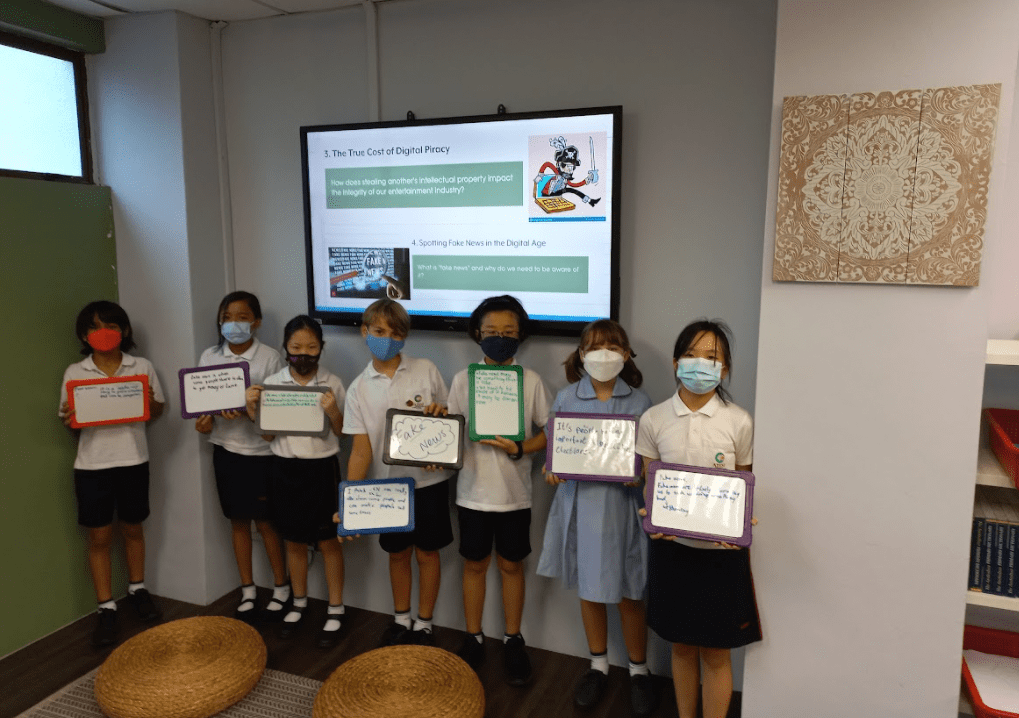PRINCIPALLY SPEAKING
Simon Brooks, Principal
‘Language is very powerful. Language does not just describe reality. Language creates the reality it describes’ - Desmond Tutu
This week at AISM all of our teachers in the Junior, Middle and Senior Schools have been thinking about how the language we use as educators and as parents might help or hinder our students becoming deeper thinkers and learners.
Our words have power. The language choices we make have the capacity to shift learners’ perceptions of themselves and of their learning.
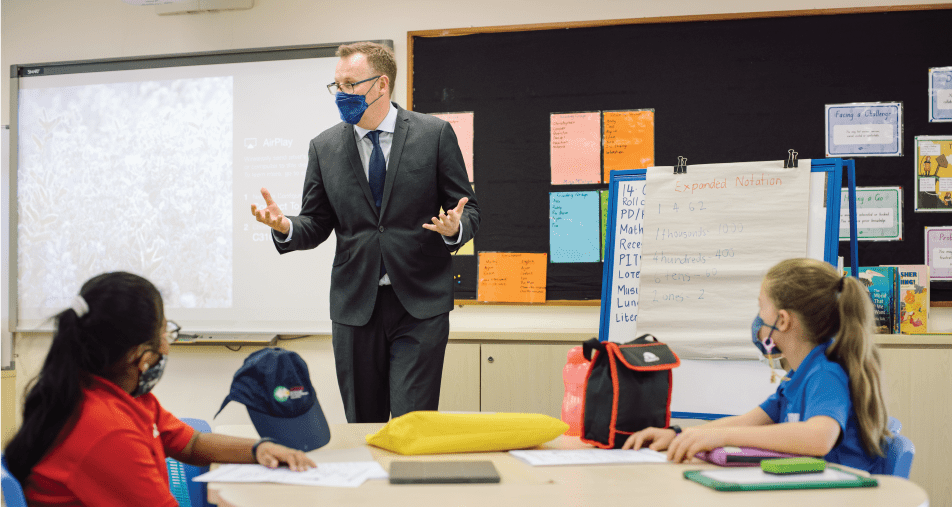
For example, something our teachers at AISM have been exploring recently is the power of the phrase ‘What else?’ as opposed to ‘Anything else?’
Let’s say that I’m a History teacher asking my students to interpret a political cartoon and tell me what they think it means. One student has offered a possible interpretation. Another offers a theory. Then there is silence. “Anything else?” I might say.
The problem with “Anything else?” is that it allows for the possibility that there might be nothing else. When I say ‘“Anything else?” to my students, I inadvertently put a lid on their thinking, sending the message that it would be perfectly acceptable and understandable if there was nothing else to offer.
In contrast, “What else?” sends a very different message. When I say “What else?” I show that I believe in them. I show that I am open to more of their thinking. I send the message that there is no limit to their potential for new ideas, interpretations and theories.
Returning to the wise words of Desmond Tutu, the language that we choose is not just a description of the world around us but actually serves to shape it.
How might our choice of language as teachers and as parents be shaping the type of people our children and young people are becoming on a day-by-day basis?
JUNIOR SCHOOL
Michelle Chaplin, Head of Junior School
AISM is the land of opportunity
We encourage our students to “Have a go” and be a part of everything possible. Take opportunities as moments to say yes!
It’s all happening in the Junior School as we head into the middle of the term and consolidate our learning. Now is the time as parents to emphasize for your child their independence and grow their organizational skill set - are they organized? Do they know which uniform to wear? What happens each day at school? Do they have their instrument?
We encourage our learners to take agency over their learning and their daily life - to know what is happening now - where to next - what about tomorrow?
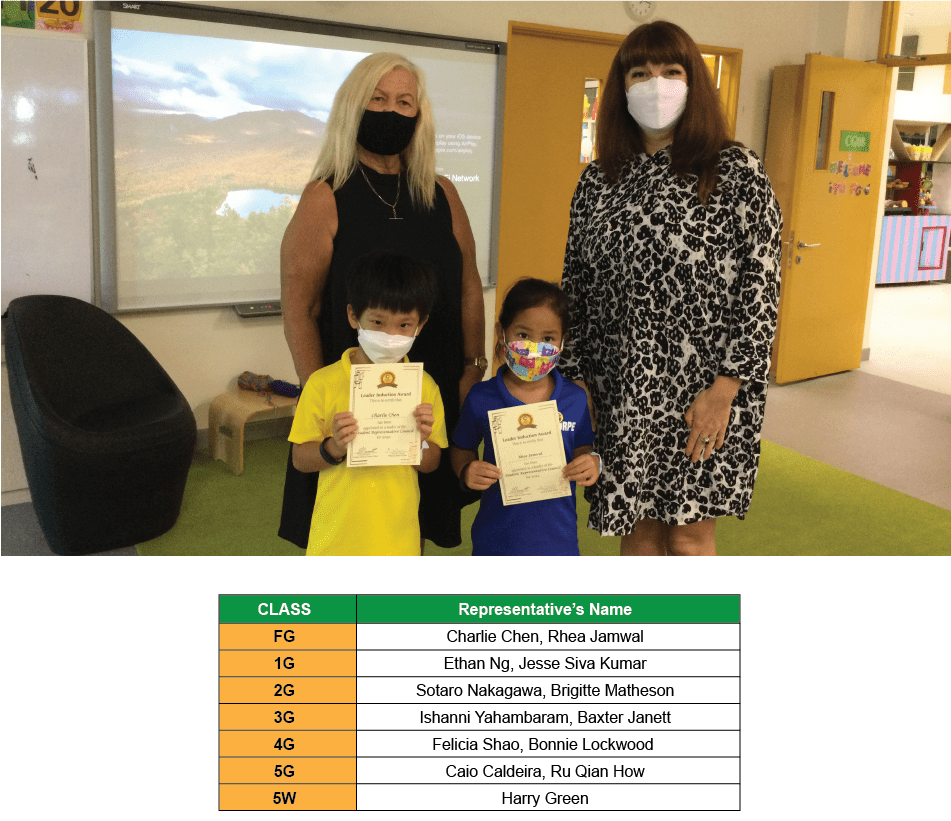
This week there are a number of highlights and opportunities across the Junior School.
SRC - we are delighted to announce our SRC Representatives for Semester 1 who will work closely with Ms. McIntyre ( Year 5 teacher) and Nur Saffya (librarian) for the benefit of all our students.
AISM is the land of opportunity
Congratulations to our 2022 Junior School House Captains who were voted in this morning - for the first year ever due to the tight results we announce 2 captains and a vice-captain for each house.
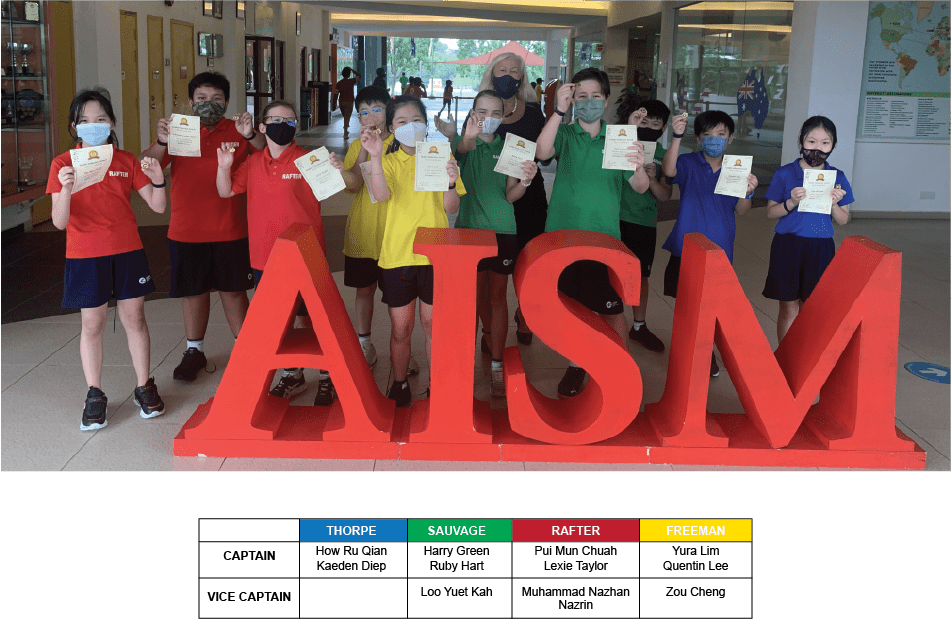
Think Tank
This week we heard various proposals from the Year 4 and 5 students who are aiming to be part of the Think Tank student leadership team - I was immensely impressed with the following students as they presented their thoughts for improving life at AISM - from turbo energy to fun tables at lunchtime, 4 square regulations and friendship benches - mindfulness space and relaxation areas with a nurse buddy thrown in - some excellent ideas for us to consider and look towards improving AISM.
Congratulations to the following students on their excellent presentations.
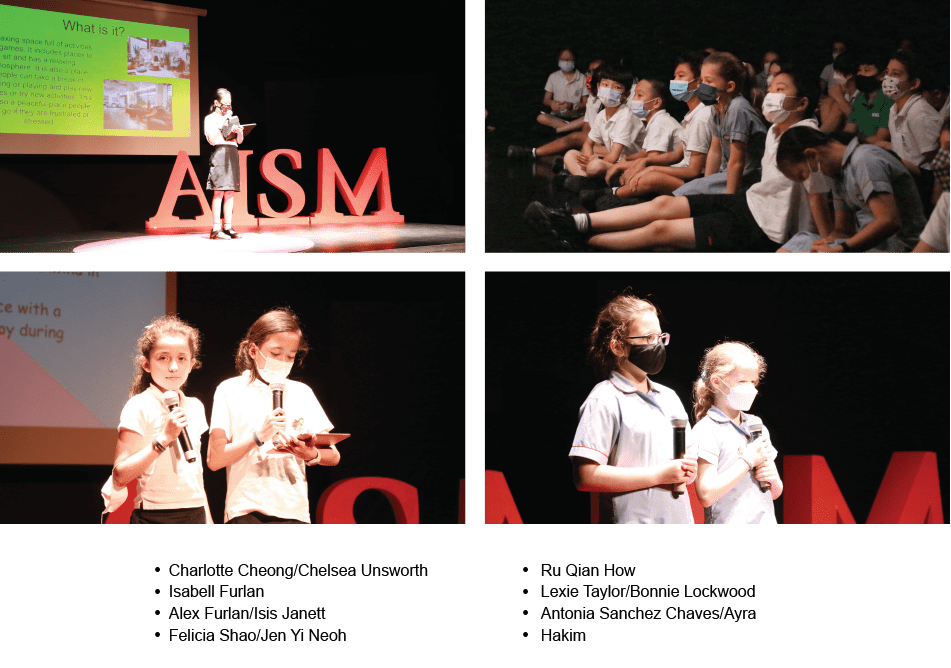
This week saw our Nursery, Foundation, Year 1 and Year 2 classes learning online for Thursday and Friday and whilst this is not our preferred scenario it was inspiring to see our students quickly adapt to their online program and navigate the day. We are fortunate to have completely sanitised our campus and look forward to welcoming all our students back on campus on Monday. My congratulations to the teachers, students and parents for your flexibility and support of AISM both online and on-campus!
Thinking for Learning is our motto for 2022 and we are off to a brilliant start - goals have been set and we’re on track for a successful Term 1 as we hit the halfway point - let’s keep the momentum rolling!
Health Services
The school nurses have been busy this term going into the Junior School classes giving presentations on the following topics:
-
Video (How to protect yourself from Covid 19)
-
Hand Washing techniques
-
Sanitize like you soap hands
-
The correct way to wear a mask and take off
-
Following SOPs
-
Stay home if you are sick
The students were very inquisitive and asked a lot of relevant questions. The foundation students were intrigued by the education video. They were all focused and showed interest in answering all the questions.
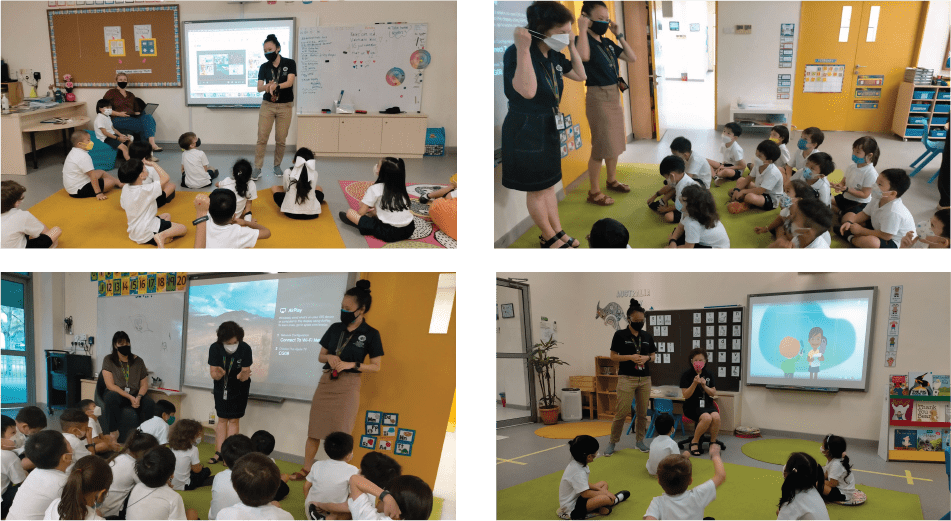
How can we make the world a better place?
During Inquiry, Year 2 students have been brainstorming and have come up with ideas like; planting more trees, recycling, don’t waste too much paper, reusing plastic bags and containers, composting, and a lot more!
The students learned more about the 3Rs: Reduce, Reuse and Recycle and will soon be singing about it too! However, there are still lots of questions that remain unanswered: Where does the garbage go after we separate it? Why do we compost? Why do we separate our trash? What is the effect of not recycling? Why do we need to recycle? The Year 2 students can’t wait to do more research on this topic, become experts, and become more responsible learners by taking action towards the end of this inquiry unit!

For Maths, the students are exploring patterns everywhere around them. In colors, shapes, numbers, words, emotions, and even in music. During our lessons about measuring length, Ms. Brandwagt gave us a toilet paper challenge!
The students had to accurately measure a strip of toilet paper with a ruler or a meter stick and posted their work on Seesaw to share their knowledge with their friends.
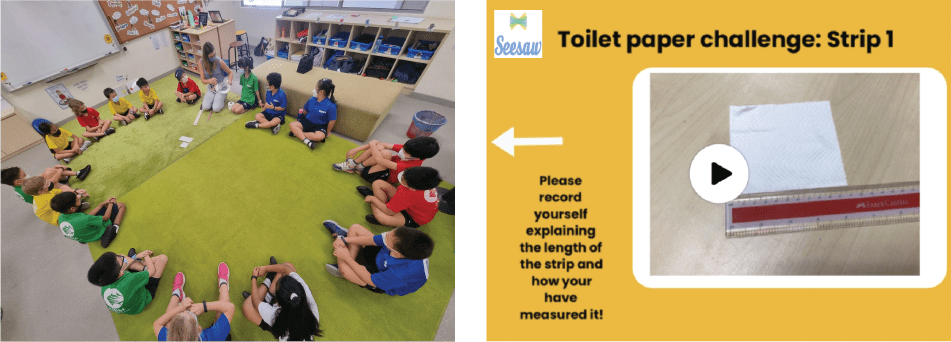
For language, the students started off writing about the best part of themselves. At the moment the students are focussing on how to make stories more interesting, using sizzling starts like dialogue, onomatopoeia, and painting a picture. The saying ‘66 and 99’ became our favorite slogan of the day.
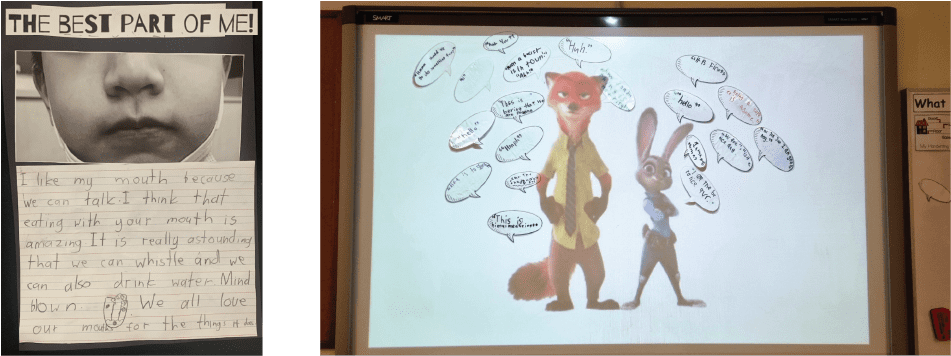
1) Bahasa Malaysia Pronunciation and Intonation skills (Phonics & Reading)
The JS LOTE Bahasa team began the year with interactive tasks for all students from Year 1-5 on campus. We discovered students’ talents and interests to help them improve their skills in Reading, Speaking, Writing, and Listening in Bahasa Malaysia. It was fascinating to see the learners challenge themselves to gain phonics in Bahasa Malaysia for the first time, especially for our ELC, Foundation, and Year 1 students. The students have been participating in the lessons, especially in Listening and Reading techniques.
The level of confidence has started to increase by using the lesson routine of Listening-as-Modelling and they have learned to use the Bahasa Malaysia Language to understand the Malaysian culture and lifestyle. ‘Mari Bercerita!’ and ‘Mari Menyanyi’ activities, helped the students to add more vocabulary and to improve their pronunciation and intonation in reading Bahasa Malaysia stories. It created a great opportunity for the students to express Bahasa Malaysia words in different ways.
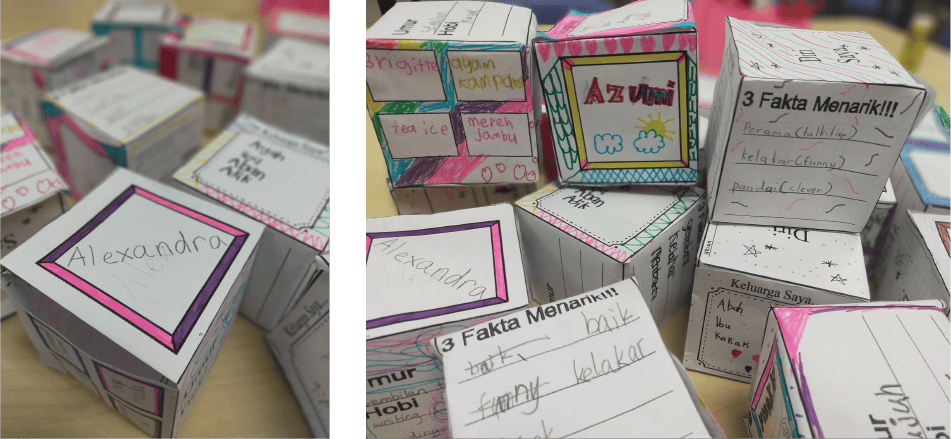
2) Malaysia Cultural Studies: Exploring Malaysian Culture through festivals
Chinese New Year and Lantern Festival Malaysian Cultural Studies enables the students to explore the Malaysian culture through Languages, Religions, and Beliefs, Music and Dance, Customs, Food, Festival and Celebration, Arts and Performances can lead them to build the culture of our school RECIPE values to understand and accept the diversity of our Malaysian culture.
JS students had an opportunity to think and wonder about Malaysian cultures and festivals through the different activities. One of the challenges that they experienced was making a Chinese weaving lantern for the Chinese New Year celebration.
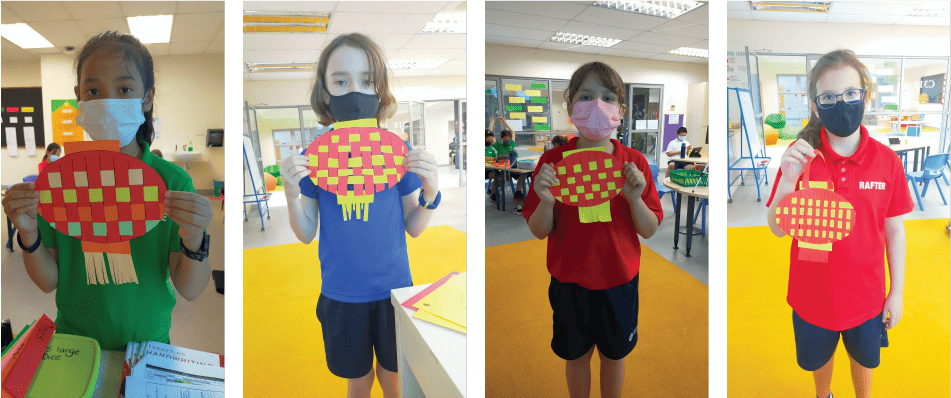
MIDDLE & SENIOR SCHOOL
Stories of Learning: Bread Tasting, Year 6 Science, Anna Wood
One of the wonderful benefits of being Head of Middle and Senior School at AISM is the opportunity to step inside some of our classrooms in MSS and witness some of the amazing learning that takes place.
On Wednesday 23rd February I was delighted to be invited into a Year 6 Science class led by teacher Mrs. Anna Wood.
Mrs Wood had prepared a wonderful lesson of thinking (and tasting) for her students. Students were first invited to view recipes for two types of bread: a sourdough, and a second loaf made in a breadmaker. After looking closely, they then offered their thoughts on the similarities and differences between the recipes, making a number of interesting observations. For example, one student noted that there was no sugar in the sourdough, another that there was 200g of ‘starter’ in the sourdough but not the other, another that there was no dry yeast in the sourdough recipe, another that there was butter in the breadmaker loaf but not in the sourdough. I noticed lots of thinking going on even at this stage: looking closely and observing, making comparisons, speculation, exploring complexity.
After this, students were cast in the role of food critics and asked to taste both breads, making comparisons using all of their senses. Amongst their observations, students noticed the hard crust of the sourdough, along with air pockets, a sour smell, a stickiness, a crunch on the outside, and a certain saltiness. In contrast, for the breadmaker loaf, they noticed a different texture, like it had been ‘dipped in milk’, a sweeter taste, a buttery texture, a softness, and a more subtle flavor. In the main, they preferred the breadmaker bread, although my favorite was certainly the sourdough! It was wonderful to see these young students thinking like scientists, making thoughtful observations, and beginning to hypothesize about why this might be.
What a pleasure it was to see a culture of thinking in action in this classroom. Thank you to Mrs. Wood and her students for the opportunity to join them for this rich learning experience. I look forward to hearing more about where they go next with their learning, as they dig even deeper into the science behind the process of breadmaking.
MSS Subject Outlines & Assessment Calendar
The Semester 1 Subject Outlines & Assessment Calendar are now live to parents on the AISM website, via the parent portal. You will find these documents organized in folders by Year Level and Subject.
These documents overview the content and assessment details for the first half of 2022, for each subject from Year 6 to Year 12.
Love is in the air! Valentine Serenade
In week 4, Year 12 have been busy donning Cupid’s arrow and sharing the love with teachers and students alike.
To celebrate Valentine's day and raise money for AISM’s community Matilda Project which seeks to assist Chin Refugees, some of our Year 12 students have been spreading love and gratitude by delivering chocolates, teddies, and serenades!

These students have really raised the bar for future generations of Year 12, as many of our students and teachers were being wooed by choreographed singing, dancing and instrumental accompaniments. We hope everyone felt loved and appreciated this week, and a big congratulations to Year 12 for their success of raising over 900rm for the Matilda Project.
Year 6-10 PDHPE Swimming: Term 1 Week 6-10
From next week onwards Years 6-10 students will take part in the PDHPE Swimming Program, developing a combination of swimming, water safety, and water sports skills.
Malaysia's Ministry of Education has granted permission to AISM for swimming classes to be conducted at school.SOPs are in place to ensure safety and social distancing occurs before, during, and after all pool sessions.

UNIFORM REQUIREMENTS:
-
Bring regular PE uniform at all times (in case of bad weather)
-
Appropriate swimming attire (Girls - one piece bathing suit; Boys swimming trunks and rash vest)
-
Swimming Goggles (optional)
-
Towel
SOPs during Swimming Program
-
Students are only allowed to take their masks off before going into the pool and must put their masks back on before entering change rooms to change into school uniform.
-
Students need to be 3m socially distanced during training time.
-
A swimming instructor is required to put on a face-shield when conducting face-to-face lessons.
Change Room Requirements
-
Students change into swimming attire at the start of class and back into school uniform before the end of class.
-
Face Masks on while in the changing room. Face masks can only be taken off after entering the pool area.
-
No sharing cubicles.
-
No sharing shampoo and towel.
-
Maintain 1m social distancing when using the changing room.
LEARNING ENRICHMENT & E³
Katrina Reece, Head of Learning Enrichment, MSS Commerce & JS Enrichment Teacher
Exploration, Extension, Excellence in our Specialist e3 Centre - Junior School
What is the e3 Centre?
At AISM, in addition to our mainstream class extension and challenge, we also have a dedicated space and specialist teacher for Exploration, Extension, and Excellence.
Currently, we are focusing on mathematical, numeracy, and applied problem-solving skills as well as cross-curricular, inquiry-based learning - always with a global focus aimed to develop cross cultural understandings.
Through our experiential thinking and learning culture, students are engaged through making real-world connections, guided exploration and high-level questioning. There is so much happening in the world that our learners want to discover and experience. With the right provocations, real and authentic learning constantly happens at AISM.
These are our very democratically agreed e3 themes for Term 1 2022!
Year 2 Bullies Need our Help - Why do people bully others and what can we do to help them change?
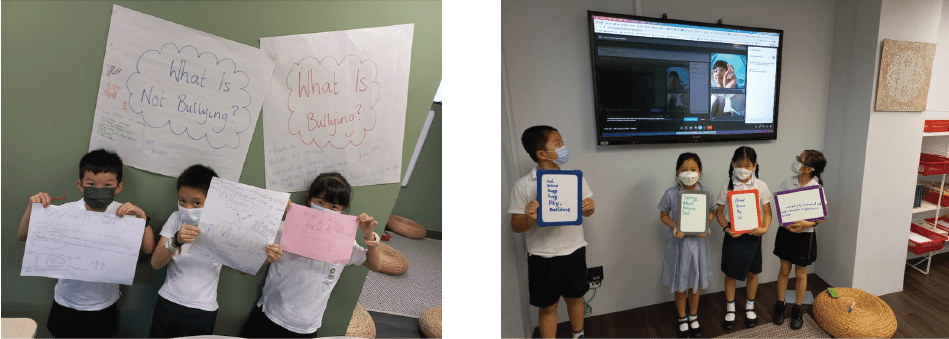
Year 3 - Our Plastic Oceans - Why is plastic waste such a problem in our oceans, and how can we solve it?
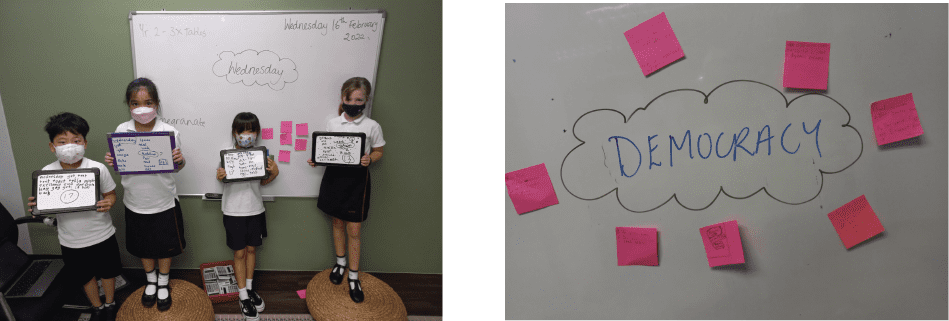
Year 4 - Our Plastic Oceans - Why is plastic waste such a problem in our oceans, and how can we solve it?
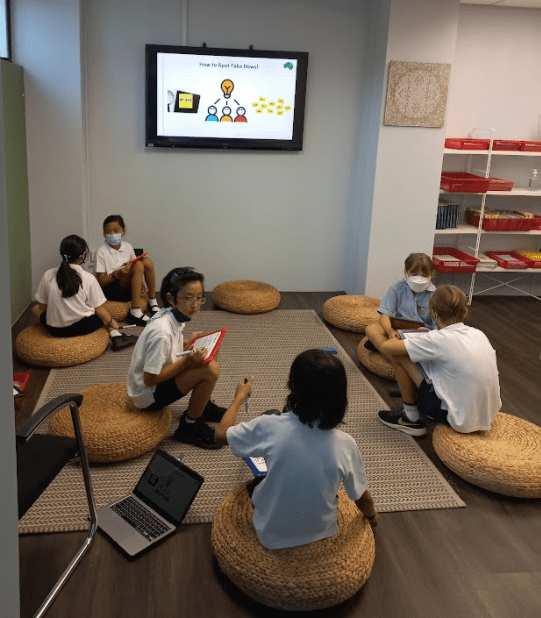
Year 5 - Spotting Fake News! What is Fake News and Why Do We Need to be Aware of it?
